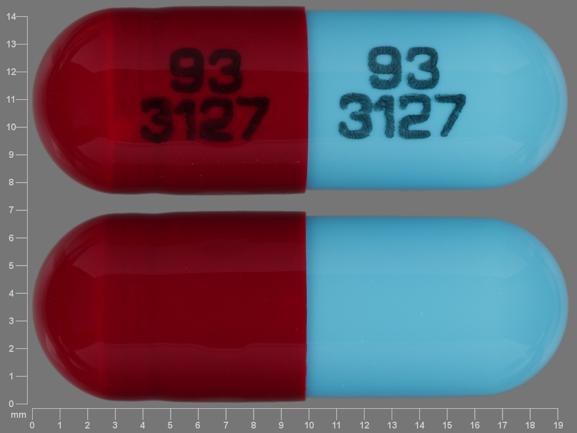Disopyramide Interactions
There are 590 drugs known to interact with disopyramide, along with 7 disease interactions, and 2 alcohol/food interactions. Of the total drug interactions, 246 are major, 334 are moderate, and 10 are minor.
- View all 590 medications that may interact with disopyramide
- View disopyramide alcohol/food interactions (2)
- View disopyramide disease interactions (7)
Most frequently checked interactions
View interaction reports for disopyramide and the medicines listed below.
- Acetylsalicylic Acid (aspirin)
- Allegra (fexofenadine)
- Aspir 81 (aspirin)
- Aspirin Low Strength (aspirin)
- Atrovent (ipratropium)
- Augmentin (amoxicillin / clavulanate)
- Benadryl (diphenhydramine)
- Calcium 600 D (calcium / vitamin d)
- Camzyos (mavacamten)
- Carafate (sucralfate)
- Centrum Silver (multivitamin with minerals)
- Crestor (rosuvastatin)
- Cymbalta (duloxetine)
- Eliquis (apixaban)
- Klonopin (clonazepam)
- Lipitor (atorvastatin)
- Metoprolol Succinate ER (metoprolol)
- Metoprolol Tartrate (metoprolol)
- MiraLAX (polyethylene glycol 3350)
- Mucinex (guaifenesin)
- Omega 3-6-9 Complex (omega-3 polyunsaturated fatty acids)
- Paracetamol (acetaminophen)
- Plavix (clopidogrel)
- Spiriva (tiotropium)
- Synthroid (levothyroxine)
- Tylenol (acetaminophen)
- Vitamin B12 (cyanocobalamin)
- Vitamin C (ascorbic acid)
- Vitamin D3 (cholecalciferol)
- Zinc (zinc sulfate)
Disopyramide alcohol/food interactions
There are 2 alcohol/food interactions with disopyramide.
Disopyramide disease interactions
There are 7 disease interactions with disopyramide which include:
- cardiovascular dysfunction
- anticholinergic activity
- sinus-AV node dysfunction
- electrolyte imbalance
- hepatic dysfunction
- hypoglycemia
- renal dysfunction
More about disopyramide
- disopyramide consumer information
- Compare alternatives
- Pricing & coupons
- Reviews (7)
- Drug images
- Side effects
- Dosage information
- During pregnancy
- Drug class: group I antiarrhythmics
- Breastfeeding
- En español
Related treatment guides
Drug Interaction Classification
| Highly clinically significant. Avoid combinations; the risk of the interaction outweighs the benefit. | |
| Moderately clinically significant. Usually avoid combinations; use it only under special circumstances. | |
| Minimally clinically significant. Minimize risk; assess risk and consider an alternative drug, take steps to circumvent the interaction risk and/or institute a monitoring plan. | |
| No interaction information available. |
See also:
Further information
Always consult your healthcare provider to ensure the information displayed on this page applies to your personal circumstances.


